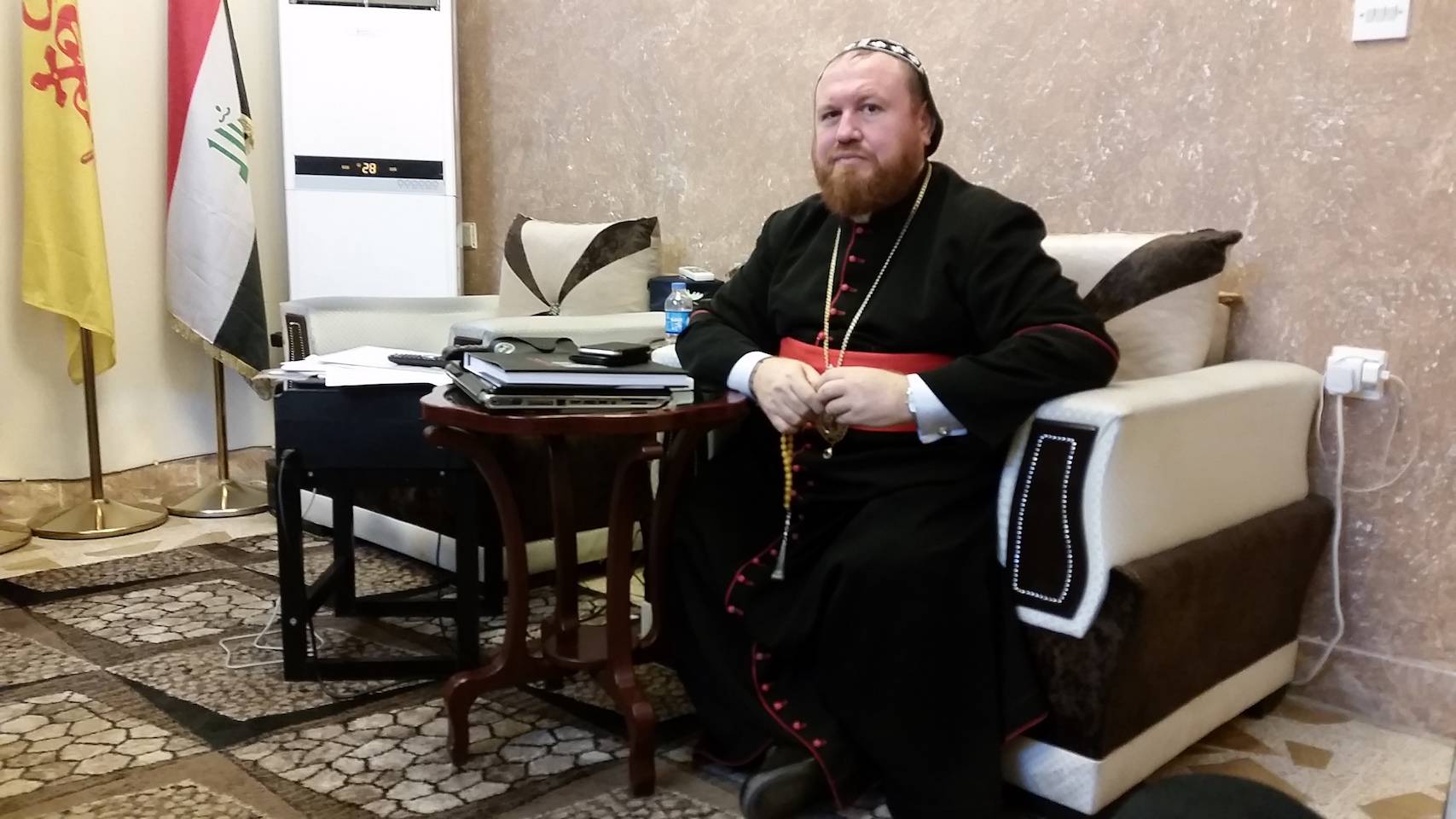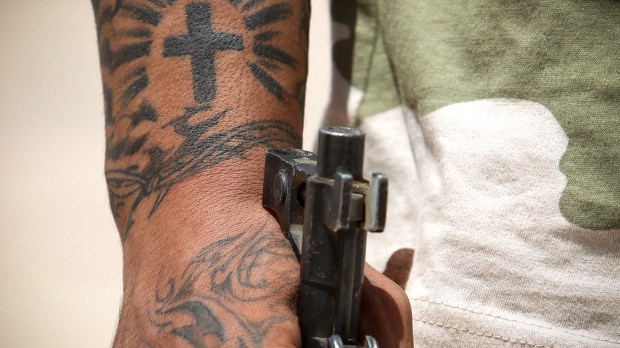Aleteia takes you on a journey to meet the persecuted Christians of the Middle East.A route that leads usto Lebanon, Syria and Iraq.In Syria, we will see Mhardeh,a small Christian village buried under the artillery shells from Al-Nosra; Homs,where the Syrian civil war began;and Palmyra,the pearl of the Syrian desert taken over by the Islamic State.In Iraq, you will discoverthe testimony of Christian refugees in Baghdad and Erbil, Qaraqosh the ghost town, Al-Qosh, miraculously spared, and Mangesh, on the border of Kurdistan.You will discover this exceptional story following along in the footsteps of martyred Christians immersed in an endless war.
Among the Syriac Christians, bishops wore only the pectoral cross. Then they began wearing a medallion representing an icon, hung around their neck by a chain of gold or silver, Byzantine style. In the East, bishops and archbishops may choose to wear one or the other or even both if it is a special celebration. Only the Patriarch carries three: two icons on either side of the cross of Christ. Monsignor Nicodemus left the venerable insignia of his episcopal consecration in Mosul, fallen into the hands of the Islamic State. He has no news from Mosul. He is deeply nostalgic about his city, his land and all his past history. But he does not miss it as much as the last inhabitants remaining there…

Aleteia: Don’t you worry about the people who stayed behind in Mosul?
Archbishop Nicodemus Sharaf Daoud: All the Christians fled the city in 2014 as the troops of Daesh approached. Those who stayed, for the most part, welcomed them. Sometimes with open arms. The Sunni Muslim Arabs who live there are so fanatical that they could teach a thing or two to the Saudis! They do not accept anyone that does not share their views. You have to remember that in the aftermath of the 1959 failed military coup, the epicenter of which was Mosul, Christians experienced the worst humiliations*. In the city, faced with various groups trying to the settle scores and the affirmation of a more radical Islam challenging the secular “peril,” Christians walked around with a dish towel on their shoulders. They held it out to their fellow Muslim citizens, who had taken up the habit of wiping their hands on the Christians’ clothes. At the time no one respected the “koufars” (the “unbelievers” or non-Muslims, Ed.) much. We do not get much more respect today.
Has the situation gotten worse?
Up until the age of 12, I played with a boy from the neighborhood. I did not even know that he was Muslim, just like he could not have cared less whether or not I was a Christian. One day his father returned from a pilgrimage to Mecca and that put an end to our games. “I am not allowed to play with a ‘koufar,’” my friend told me … You must understand that in Mosul — that the Iraqi army, supported by the coalition, has so much difficulty in reconquering — 800 Daesh terrorists have “convinced” 50,000 men to join their ranks. Joining them in order to indulge in the worst abominations: throwing women and children into the streets, decapitating, raping, enslaving. The soil must have been fertile for them to rally so easily to their cause.
Is the coalition likely to eradicate the Islamic state?
Western politics are diabolical. The interests of each party are so contradictory that their chance of success is small. We are only asking for our laws and our dignity to be respected. In Saddam Hussein’s time, the law was enforced. In mostly Muslim Iraqi Kurdistan (where Christians from Mosul have found refuge near Erbil, Ed.), the law protects us and it protects us even better than elsewhere in Iraq. We are waiting for decisions to be taken to ensure international protection and rules set by the United Nations.
Is cohabitation with Muslims still possible?
We do not hate Muslims. Under the rule of law, like here in Kurdistan, we can all live together. Only Islam as Daesh enforces it is detestable. Their God must indeed be weak and cowardly for them to feel compelled to protect him in such a manner! Our God protects us and He will always protect us. As I often say, God does not need men who take it upon themselves to execute his justice, to act as his sword arm. If you think that someone is a disbeliever and should die, let God kill him Himself! We shall see who dies first.
Do you have a message for Western Christians?
Wake up. Do not let into your country refugees who have made us refugees here. On November 24, a new Syriac Orthodox church was consecrated in London in the presence of HRH Prince Charles. The embassy refused to issue me a visa, lest I not return to Iraq. I am a permanent resident of Australia; I have the necessary visas to travel to the United States, Canada and even France. Why would I stay in England when my people are here and they are suffering?
* The Arab secular and nationalist movement led by General al-Shawaf was violently suppressed by the communist government allied with the USSR of Abd al-Karim Qasim. It was then overthrown during the Ramadan Revolution of 1963, when the Ba’th party, socialist and pan-Arab, took power and Saddam Hussein emerged.
Translated from the French.

